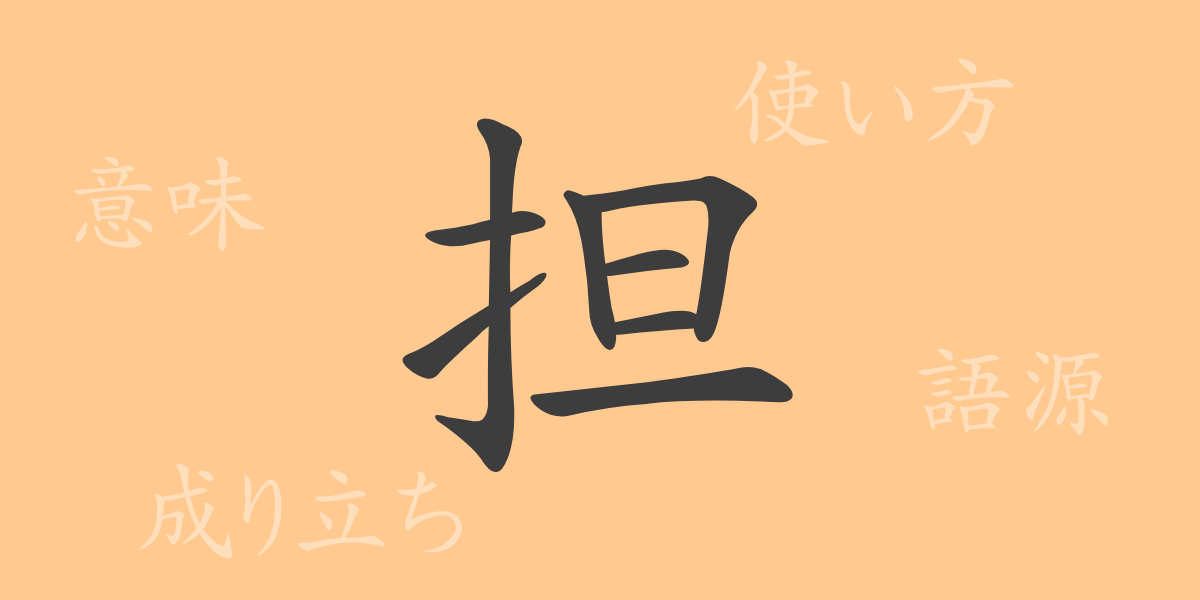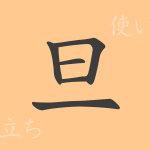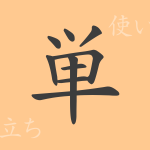Japanese contains thousands of kanji, each with its own unique history and meaning. These characters, deeply rooted in our daily lives, not only enrich communication but also serve as a means to express culture and tradition. In this article, we spotlight the common kanji ‘担’ (タン) (tan), exploring its origins, meanings, usage, and extending into idioms and phrases that utilize it.
Origins of ‘担’ (タン) (tan)
The kanji ‘担’ originated in ancient China, depicting a person carrying a load on a pole over their shoulder. Composed of ‘手’ (hand) and ‘旦’ (daybreak), it symbolically represented carrying essential items at the start of a new day. Over time, this evolved to mean carrying or shouldering in broader contexts.
Meaning and Usage of ‘担’ (タン) (tan)
‘担’ fundamentally means ‘to carry’, ‘to shoulder’, and ‘to bear’. It also extends metaphorically to mean ‘to take responsibility’ or ‘to play a role’. In everyday language, it is used in contexts like ‘荷物を担ぐ’ (to carry a load) and ‘役割を担う’ (to play a role), reflecting both its literal and figurative significances.
Readings, Stroke Count, and Radical of ‘担’ (タン) (tan)
The kanji ‘担’ reflects its complexity and richness in form and meaning through its various readings and the number of strokes:
- Readings: On’yomi ‘タン’ (Tan), Kun’yomi ‘かつ.ぐ’ (katsu.gu), ‘にな.う’ (nina.u)
- Stroke Count: 13 strokes
- Radical: 扌(te-hen) (hand radical)
Idioms and Phrases Using ‘担’ (タン) (tan) and Their Meanings
The kanji ‘担’ is found in a wealth of idioms and phrases, offering rich expressions in Japanese. Here are a few examples:
- 担当 (たんとう) (tantou): Designated responsibility for a specific task or role.
- 担保 (たんぽ) (tanpo): Collateral or security in financial contexts.
- 担架 (たんか) (tanka): A stretcher used to carry the injured.
- 重荷を担う (おもにをになう) (omoni o ninau): To bear a heavy responsibility or pressure.
- 一人で担ぐには重過ぎる (ひとりでかつぐにはおもすぎる) (hitori de katsugu ni wa omosugiru): A proverb meaning a problem or difficulty is too much for one person to handle alone.
Summary on ‘担’ (タン) (tan)
The kanji ‘担’, with its depiction of physical action and abstract societal roles, encompasses both tangible actions and social responsibilities. Frequently used in everyday life and business contexts, it is indispensable in Japanese language and culture. As seen in various idioms and phrases, ‘担’ lends weight and significance to our speech, symbolizing the richness of the Japanese language.

























